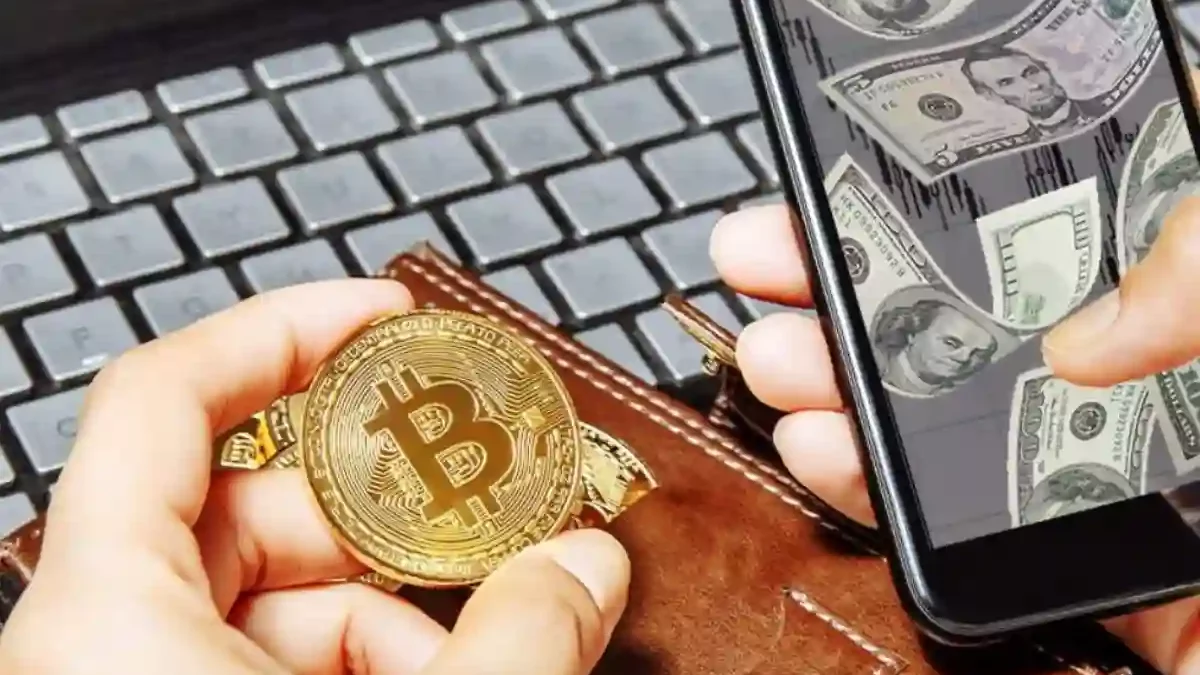Table of Contents
What are Fake Bitcoin Wallet Apps?
Fake Bitcoin wallet apps refer to malicious applications designed to imitate legitimate Bitcoin wallet services, with the intention of deceiving and defrauding users. These apps often mimic the appearance and functionality of well-known and trusted wallet providers, making it difficult for users to differentiate between genuine and fake offerings.
Once installed, these deceptive apps may trick users into sharing their private keys or login credentials, allowing scammers to gain unauthorized access to their cryptocurrency holdings and are easily targeted by cryptocurrency scams.
Moreover, Fake Bitcoin wallet app scammers pose a significant risk to mobile users, highlighting the importance of vigilance, thorough research, and reliance on trusted sources when selecting and using wallet applications.
How do Fake Bitcoin Wallet scams work?
Fake Bitcoin wallet apps operate by preying on the confidence of unwary customers looking for a simple and secure solution to manage their bitcoin. Scammers create dangerous programs that seem like popular and genuine wallets and spread them in a variety of ways, including through unlicensed app stores and phishing websites. When these apps are loaded, and leads to various bitcoin scams which may either seek users’ login credentials or construct bogus addresses, transferring payments to the scammers’ wallets.
Additionally, some bogus wallet apps may even contain keyloggers or other
malware designed to steal personal information. Scammers can steal funds, compromise personal information, and inflict major financial losses on victims by tricking users and getting unauthorized access to their Bitcoin holdings.
Uncovering common tactics used by scammers
Scammers employ various tactics to lure unsuspecting victims into giving out sensitive information. Mentioned below are a few of the most common ones:
Creating Fake Apps – Scammers develop and distribute counterfeit wallet apps that closely resemble popular and legitimate ones. They use similar names, logos, and even user interfaces to trick unsuspecting users into believing they are downloading a genuine and authorized wallet app.
Malicious Links and Downloads – Scammers share malicious links or encourage users to download software that contains malware. These kinds of malicious links and downloads are capable of compromising users’ devices, which enables scammers to gain access to their wallets or private keys and steal their money or digital assets.
Social engineering tactics – This is one of the most common tactics used by scammers to gain trust and personal information from unsuspecting users. Also, they pose as customer support representatives, urging users to provide their credentials or private keys to resolve an alleged issue with their wallet.
App store impersonation – In this technique, scammers distribute fraudulent wallet apps through unlicensed app shops, which have less stringent verification procedures. They take advantage of the absence of oversight to make their bogus programs available to unwary consumers who may not exercise caution when downloading.
Fake Reviews and Ratings: Scammers manipulate reviews and ratings to make their fake wallet apps appear legitimate. They may use fake accounts or incentivize users to leave positive reviews, further deceiving users into trusting the fraudulent app.
Tips to identify and secure yourself from Fake Apps
Identifying fake bitcoin wallet apps can be challenging, but by following certain practices and paying attention to specific indicators, users can increase their chances of distinguishing between genuine and fraudulent apps. Here are some tips for identifying fake Bitcoin wallet apps:
Stick to Official Sources – Download wallets only from respected app stores (e.g., Google Play Store, Apple App Store) or wallet providers’ official websites. Third-party app stores and unknown sources should be avoided because they are more likely to house phoney apps.
Research the Developer – Before you download a wallet app, look into the developer or company behind it. Examine their website, reputation, and user reviews to guarantee their validity and dependability.
Inspect the app’s permissions – Review the permissions that the app installation method requires. A user should exercise caution if an app requests unneeded or excessive permissions that are unrelated to its intended use. Fake apps may request sensitive data or device features that they do not require.
Verify the App’s Website and Domain – Visit the official website of the wallet
provider and verify the app’s information, screenshots, and download links. Scammers may create websites and domains that closely resemble the official ones, so check for any inconsistencies or suspicious elements.
Check for Verified Developer Badges – Some app stores provide verified badges for trusted developers. Look for these badges, as they indicate that the app has undergone a verification process.
Check App Reviews and Ratings – Look for user ratings and read reviews of wallet apps online. Be wary if there are multiple negative or contradicting reviews or ratings given by users for the particular interface.
Compare App Details – Compare the details of the wallet app you want to download with the information available on the official website or app store. Pay attention to the app name, logo, and any discrepancies in design or functionality.
Conclusion
Ultimately, to safeguard against fake Bitcoin wallet apps, it is crucial to follow certain precautions. First, only download wallets from trusted sources, such as official app stores or reputable websites. Verify the developer’s reputation and reviews before installation. Additionally, double-check the app’s permissions and ensure it uses secure protocols for data transmission.
Regularly update your device’s operating system and antivirus software to mitigate potential vulnerabilities. Lastly, exercise caution when entering personal information and never share your private keys or provide sensitive information.

